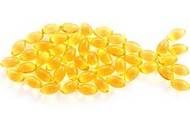This post covers all you need to know about vitamin A, including causes of deficiency (it’s quite common these days when people restrict dietary fats), best food sources, supplementation guidelines and benefits.
Keep reading.
Vitamin A is an essential nutrient we can’t do without but it’s often overlooked by both health practitioners and patients which may result in a deficiency that is not corrected sometimes for a long period of time.
In fact many unexplained and difficult to resolve chronic health problems are associated with low levels of this vitamin.
Needless to say any deficiency related health problems will not be resolved unless the diet is corrected and appropriate supplementation is undertaken.
Vitamin A deficiency mini case study
As an example, I worked with a client who was a vegetarian and was given an iron supplement by her doctor to correct iron deficiency anaemia. She didn’t respond to iron supplementation (her levels didn’t go up at all) plus she was constipated whilst taking iron (this is a common side effect of iron supplementation).
She came to me looking for answers and by doing basic blood tests we discovered that she was also deficient in zinc, low in vitamin D, plus her protein markers were low and she displayed typical symptoms of low vitamin A related to vision, skin, hair and nail changes (see what they are below), in addition her diet was also inadequate.
It’s known that vitamin A deficiency may exacerbate iron deficiency anaemia, therefore I prescribed high doses of quality cod liver oil, vitamin D, zinc plus a bioavailable iron supplement, and advised her to also eat foods rich in vitamin A such as eggs, butter and orange-coloured vegetables with addition of olive oil (she was a vegetarian so her food options were limited).
Studies show that the combination of supplemental vitamin A and iron seems to reduce anaemia more effectively than either supplemental iron or vitamin A alone (1).
Other studies in rats have shown that iron deficiency alters plasma and liver levels of vitamin A (2). After around 5 weeks of supplementation she was feeling much better and had more energy. Blood tests showed that her iron levels went back to normal after just two months.
She was then able to maintain good levels by consuming iron and vitamin A rich foods, vitamin D, sufficient amount of quality protein, and taking a multivitamin on a regular basis.
Despite the importance of this vitamin for health, it is also one of the most controversial nutrients due to its potential toxicity if consumed and/or supplemented in excessive quantities. Being a fat soluble vitamin, too much of vitamin A in the diet and especially from multiple supplements, can accumulate in the body, leading to potential harm.
More likely however, low fat, calorie restricted diets and avoiding vitamin A rich animal foods, place many people at risk of having dangerously low levels.
What is vitamin A?
Vitamin A is a family of fat soluble dietary compounds, three of which—retinol, retinal and retinoic acid—play significant roles in the human body, with each compound performing different functions. It’s essential to understand that vitamin A in foods is found in two very different forms:
- Preformed, ’ready to use’ vitamin A (which is colourless) is found in foods of animal origin only.
- Provitamin A (in the form of yellow/orange coloured carotenoids) is found only in plants and needs to be converted in the body (via a number of steps) to the active form.
Preformed vitamin A and provitamin A differ significantly in bioavailability and biologic activity. The preformed type is ready to be utilised by the body upon ingestion (providing the digestion function is working properly).
Carotenes are powerful antioxidants and can be converted into active vitamin A; however, many people are unable to do so, especially if their diets contain insufficient fat as absorption and storage of vitamin A is significantly increased by the presence of fat when consuming foods containing this vitamin.
Research shows that a significant number of individuals, both vegetarians and meat eaters, are unable to absorb and/ or convert provitamin A to active form. Even in individuals who would normally be able to metabolise provitamin A to the active form, numerous factors can effectively impede this conversion (3).
Moreover, efficiency of carotenoid absorption is affected not only by the amount ingested but also by processing and/ or cooking of the food, other dietary ingredients that stimulate absorption such as the type and amount of fat, presence of zinc and vitamin E.
Typically most people following low fat diets and vegetarians become deficient over a period of time.
More than 90% of vitamin A present in the body is found in the liver where it is stored and re-distributed as needed. Normally, the supply of this vitamin in the liver is enough to last for several months.
Therefore any deficiency usually develops slowly and is not recognised until it becomes more severe and various symptoms develop (see more details below).
Why is vitamin A essential for good health?
Vitamin A is needed for:
- Protein assimilation – without enough vitamin A the body can’t utilise protein properly which affects muscle repair and building new muscles, including the heart muscle. (4). Importantly, it is quickly depleted when protein intake is high thus requiring higher dietary intake to counteract this.
- Calcium assimilation and metabolism – deficiency has detrimental effects on bones, muscle contractions and the nervous system, to name a few. Vitamin A also optimises the body’s use of vitamin D involved in bone health, numerous body functions and gene expression. To learn more read my vitamin D article here. [2]
- Normal function of other key nutrients – deficiency impacts the status of a number of other essential nutrients especially protein, fats, iron, zinc and vitamin E.
- Proper foetal growth during pregnancy and prevention of birth defects. It is also vital to have high levels during lactation.
- Endocrine system – especially for optimal thyroid function.
- Immune system – to prevent all types of infections. Vitamin A is known as the “anti-infective” vitamin (15) as it improves the immune system response to bacterial, viral and parasitic infections.
- Production of sIgA [3] (secretory Immunoglobulin A) – which acts as the ‘first line of defence’ helping to protect against the entrance of foreign substances into the body such as bacteria, viruses, fungi, parasites and food particles (via the damaged gut wall).
- Production of sex and stress hormones – research shows that it is essential for stimulating testosterone production (5) (see more on this below).
- Vision – essential for night vision and the ability to adapt from bright light to dim light (night blindness indicates a lack of vitamin A).
- Skin (dry skin and hair, weak fingernails) and mucous membranes of the stomach, gut, lungs, urinary bladder and sinuses.
- Antioxidant functions – vitamin A helps to protect the body from pollutants, free radicals, and cancer development (in particular lung and breast cancer) (6).
Furthermore, research shows that vitamin A has the ability to naturally increase muscle growth by boosting testosterone levels in the body. One study compared the dietary intakes of 155 pairs of male twins and found a correlation between testosterone levels and vitamin A intake. (7).
Needless to say, taking this vitamin is much safer that taking steroids and should be utilised more widely by body builders and people who want to increase their muscle mass, including elderly.
Another study on adolescent boys who experienced delayed puberty showed that correcting deficiency with 6,000 IU of vitamin A per day, together with iron, worked as well as testosterone injections to rev up the maturing process and boost their lean body mass. (8).
Dietary factors, namely not consuming foods high in vitamin A, play a crucial role in developing a deficiency. Low-fat foods in particular can quickly deplete vitamin A levels because fat is necessary for the absorption of vitamin A in the gut. Once intake becomes low, deficiency may take one to two years to develop due to existing vitamin A stores in the liver.
Main causes of vitamin A deficiency
- Low dietary intake of vitamin A rich foods or low fat intake as it requires fat to be absorbed and utilised.
- Impaired digestion of fats – a very common cause due to a number of digestion abnormalities including liver and gallbladder disorders (bile is essential for fat digestion), laxative use, chronic diarrhoea, celiac disease or pancreatic insufficiency.
- Parasitic infections of the gut and gut flora imbalances (3).
- Low zinc and protein intake – vegans and vegetarians are especially at risk.
- Hypothyroidism – thyroxine (T4) increases vitamin A absorption thus low levels will impact it’s status.
- Toxins, environmental pollution and alcohol – chronic alcohol consumption results in depletion of liver stores of vitamin A and may contribute to alcohol-induced liver damage (9).
- Medications – including antibiotics, laxatives and cholesterol-lowering drugs interfere with vitamin absorption.
- Ageing – elderly are prone to vitamin A deficiency due to impaired digestion and more inflammation in the body.
Best sources of vitamin A
As mentioned above, animal sources provide the body with an active form vitamin A which is better absorbed. Carotenes from plant sources have to be converted into vitamin A in the body. This conversion can only happen when there is sufficient fat present. Best sources are:
- Organ meat especially liver – liver is one of the most nutrient dense foods. Interestingly, polar bear liver is the highest source of vitamin A! Fortunately, the livers of other animals are also very good sources (lamb and beef livers are particularly good).
- Cod liver oil (high quality and not rancid) with natural vitamin D – a very good source of natural vitamins A and D (as stated above they work together in the body)
- Butter and cream – when sourced from grass-fed cows
- Eggs (organic)– from pasture-raised chickens
- Cheeses (yellow) and cottage – they contain smaller amounts
- Plant sources rich in carotenoids including alpha- and beta-carotene (carrots [4], pumpkin, sweet potatoes, red capsicums, mangoes, spinach, broccoli etc.); lycopene (present in tomatoes [4], pink grapefruit, watermelons, guava, rosehips); and lutein (from spinach, kale, kiwi fruit [5], lettuce, organic corn).
Increasing the consumption of the above foods, as well as supplementation with high quality cod liver oil, are the most reliable ways to safely increase vitamin A levels and to treat a number of health problems including skin conditions (acne, eczema and psoriasis); eye problems (dry eyes, cataracts), strengthen the immune system, PMS and hormonal imbalances, respiratory conditions (allergies, bronchial asthma, sinusitis); Crohn’s disease, IBS as well as open wounds and skin infections (topically).
Testing for vitamin A deficiency
The most commonly used indicator of vitamin A status is a blood test measuring the retinol binding protein concentration. Naturopathic assessments also include looking for certain signs and symptoms such as night blindness, rough skin on the upper arms and thighs, dry skin and hair, breaking and ridged nails, dry eyes, acne, and testing for mineral and vitamin deficiencies related to vitamin A status, as discussed above.
Toxicity
High potency synthetic vitamin A supplements should not be used without medical supervision due to the risk of toxicity. Therefore taking synthetic forms of vitamin A can lead to toxicity, especially when self-medicating or when taking a number of supplements each containing vitamin A – it all adds up.
On the other hand toxicity is unlikely with a moderate to high natural vitamin A intake from whole foods.
Current recommendations state that when taking a multivitamin/multimineral supplement it should have no more than 2,500 IU (750 mcg) of preformed vitamin A and no more than 2,500 IU of vitamin A as beta-carotene (6).
As mentioned above, carotenoids from plants don’t cause vitamin A toxicity because the rate of conversion of carotene to vitamin A is very slow and intestinal absorption slows as intakes becomes higher.
If you think you may have low vitamin or mineral levels impacting your health, please get in touch for assessment and testing.
Joanna Sochan
Wholistic Health and Lifestyle Therapist
Natural and Lifestyle Therapies for Abundant Health and Wellbeing
References
1) Jang JT, Green JB, Beard JL, Green MH. Kinetic analysis shows that iron deficiency decreases liver vitamin A mobilization in rats. J Nutr. 2000;130(5):1291-1296. (PubMed) [8]
2) 2 Wan DC, Shi YY, Nacamuli RP, et al. Osteogenic differentiation of mouse adipose-derived adult stromal cells requires retinoic acid and bone morphogenetic protein receptor type IB signaling. Proc Natl Acad Sci U S A. 2006 Aug 15;103(33):12335-40. (Abstract) [9]
3) Lara Pizzorno, MDiv, MA, LMT Vitamin A – Tolerance Extends Longevity
4) Narbonne, et. al., “Protein metabolism in vitamin A deficient rats. II. Protein synthesis in striated muscle,” Ann Nutr Aliment. 1978;32(1):59-75
5) Livera, et al., “Regulation and Perturbation of Testicular Functions by Vitamin A” (Review), Reproduction (2002) 124, 173-180
6) Linus Pauling Institute, Micronutrient Research for Optimum Health, Oregon State University [10]
7) Bishop, et. al., “The effect of nutritional factors on sex hormone levels in male twins,” Genet Epidemiol. 1988;5(1):43-59
8) Zadik, et. al., “Vitamin A and iron supplementation is as efficient as hormonal therapy in constitutionally delayed children,” Clin Endocrinol (Oxf). 2004 Jun; 60(6):682-7
9) Wang XD. Chronic alcohol intake interferes with retinoid metabolism and signaling. Nutr Rev. 1999;57(2):51-59. (PubMed) [11]
10) www.mercola.com Eating organ meats
11) University of Maryland Medical Centre
12) Myhre, et al., “Water-miscible, emulsified, and solid forms of retinol supplements are more toxic than oil-based preparations,” Am J Clin Nutr 78 (2003) 1152-9
13) Whitney E, Rolfes S. Chapter 11, “The Fat Soluble Vitamins,” in Understanding Nutrition, Wadsworth: Belmont, CA, 2008, p. 369-389.
Additional resources
- Low vitamin D – what you need to know to achieve and maintain high levels [12]
- Vitamin D deficiency: Do you know your current vitamin level? Check here if you are deficient [13]
- Adrenal fatigue treatment: The Kalish Method in Australia [14]
- Foods and home remedies for deep sleep [15]
- Histamine intolerance: causes and treatment [16]
Disclaimer: The above material is for informational and/or educational purposes only. It should not be used to self-diagnose and it is not a substitute for a medical advice, diagnosis, treatment, prescription or recommendation. All viewers of this content, especially those taking prescription or over-the-counter medications, should not make any changes in their health regimen or diet before first consulting a doctor or other qualified health provider with any questions they may have regarding a medical condition or their particular circumstances.

Joanna Sochan is a Natural Therapist and founder of Naturimedica Holistic Health & Wellness. She has a passion for helping clients transform their lives by becoming healthy and well naturally. Joanna has 10+ years experience in clinical practice and has special interest in solving complex cases, functional medicine testing, gut health, sleep, fatigue and chronic pain. She guides clients through her tailored programs and eCourses as well as helping them individually (mostly online) Australia-wide. View full bio [17].

